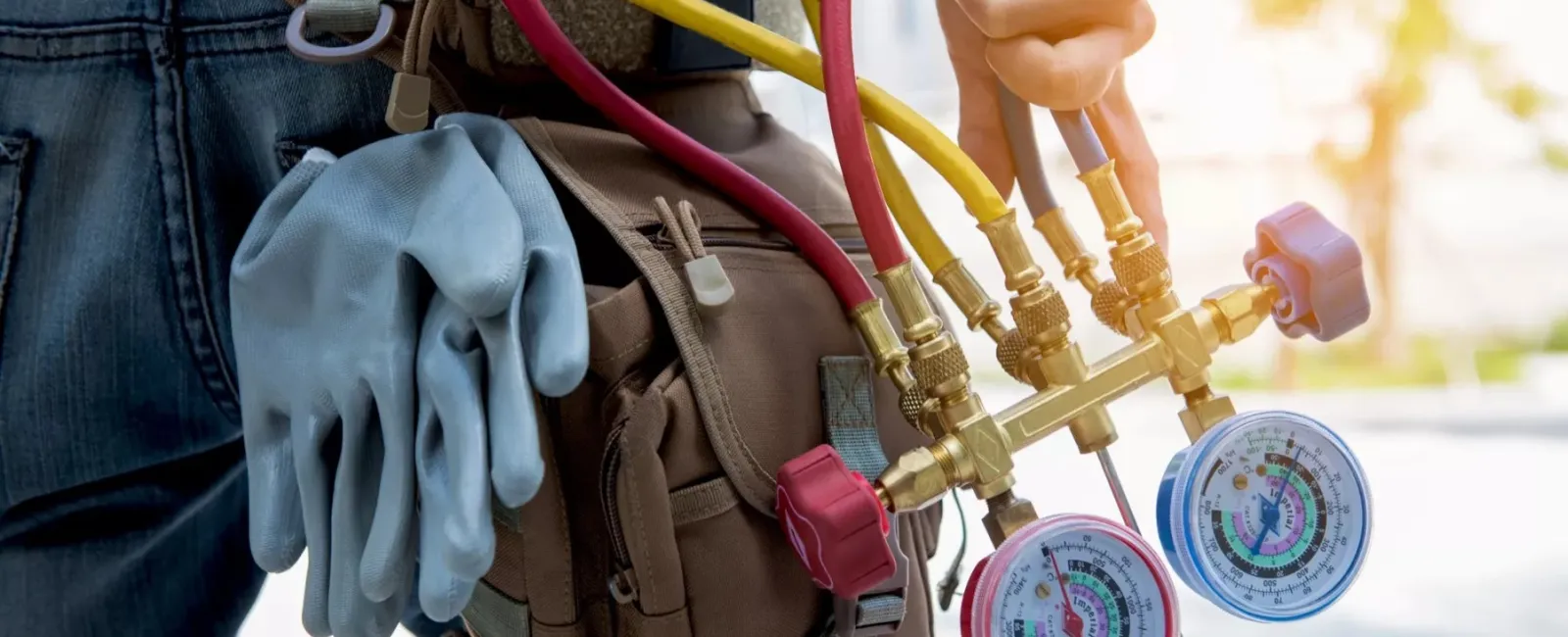Air conditioners do a lot of heavy lifting for residential homes as summer heats rise. Unfortunately, that workload means that even the best air conditioning units wear out and require replacement over time.
Most air conditioners don't completely break down overnight. Instead, they start wearing out over time and developing new problems that forewarn homeowners that they'll soon need a replacement for their air conditioner. But exactly when is it time to replace a central air conditioner—and what are the signs homeowners should be looking for?

Read on to learn about five tell-tale signals for when to replace your A/C unit.
1. Your A/C Unit Isn't Keeping Your Home Cool
It's one of the clearest signs your air conditioner needs to be replaced: If your unit can't keep your home cool in warming temperatures, it isn't meeting your household's needs.
While it's normal for some A/C units to struggle to meet demand in extremely hot weather, your air conditioner might be ready for replacement if it's regularly unable to keep your home at your desired temperature.
2. Your Energy Bills Are Soaring During Hot Weather
As air conditioners age, they become less efficient. This means they end up using more energy to adequately cool your home. For this reason, you might notice a spike in your energy bills as your air conditioner is relied upon more regularly during the hotter months of the year.
If you've lived in your home for multiple summers, you can compare your current energy bills to your charges from the same months in prior years. If your bills are rising compared to your historical payments, it could be a sign of a depleted A/C unit.
3. Your Air Conditioner is Producing a Bad Smell
When your A/C unit is running, a bad smell is never a good sign. The source of the smell dictates the kind of smell you're noticing. If the smell is musty or sour, it could be a sign of mold in the A/C system, which could be a serious problem for both your own internal air quality, and for the A/C unit itself.
If the smell is metallic or burning, it could be a sign that something's wrong with the mechanical components in your air conditioner. If this smell develops, shut off the unit and contact an HVAC professional immediately.
4. Your A/C Unit is Making Loud or Unusual Noises
Grinding, screeching, or clanging noises could signal a need for repairs on your air conditioner. If the unit is allowed to continue running while this sound is being made, small, fixable damage could grow into major mechanical problems and failures that require a replacement for your air conditioner.
As with a bad smell, turn off your A/C unit if it starts making strange noises, and contact an HVAC service professional to figure out the root problem.
5. Your Air Conditioner is At Least 10 Years Old
When should you replace your air conditioner? In some cases, it depends on the age of the air conditioner, and the manufacturer's estimated life expectancy for the appliance. If your A/C unit is less than five years old but showing clear signs that it needs to be replaced, you might want to first check its warranty before replacing the appliance.
That said, most air conditioners are built to last 10 to 20 years. While the exact life expectancy may depend on a number of factors, including the size of your home and the manufacturer's advertised life expectancy, any air conditioner over a decade old is a prime candidate to need replacement, depending on the issues it develops. While it's possible for an A/C unit to properly function for 15 or 20 years—or even longer—homeowners should be prepared for their unit's eventual breakdown.
Do I Need a New Air Conditioner?
Air conditioners aren't cheap, which is why many homeowners are eager to repair the appliance and extend its life even when its performance and/or efficiency have declined. While this can make sense for some households—particularly if you just need time to save up for the cost of a new unit—delaying an A/C replacement can end up being the more costly move.
If the unit is still running but consumes a lot of energy, you're paying extra on your utilities bill that could be put toward payments on a new air conditioner. Once you get a clear sign your current A/C unit is about to go, weigh the upfront cost of that appliance against the overall cost of overpaying for utilities, paying for repairs, and eventually paying to replace that appliance. The difference in cost could be persuasive in convincing you it's time to change out your air conditioning unit.
The decision to replace an A/C unit may be a tough financial pill to swallow, but taking action fast could help you save more money over the long run—and you'll be more comfortable in your climate-controlled home, too. If you upgrade your air conditioner, you might even end up with a more powerful and efficient appliance than you've had in the past.

